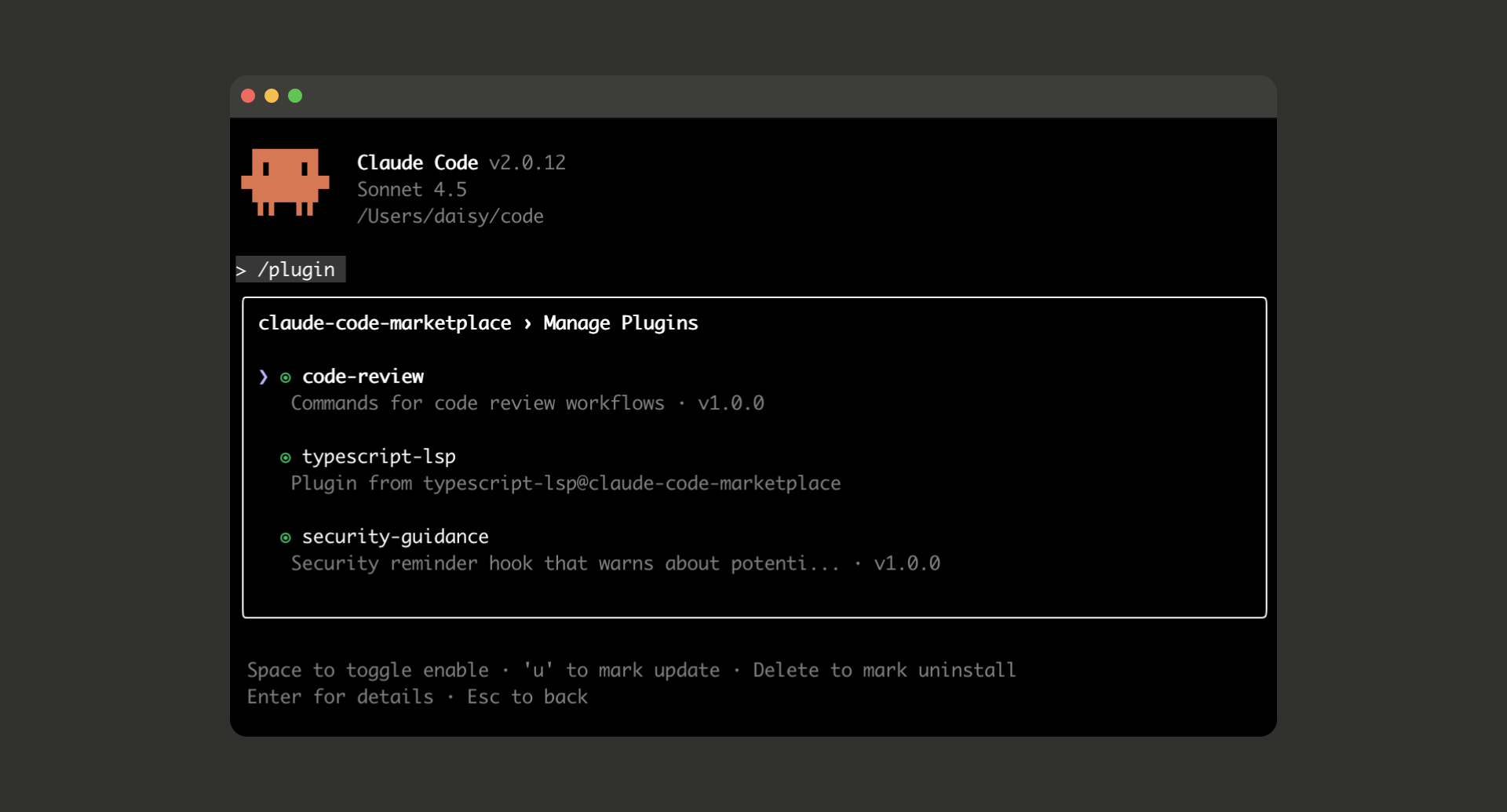
Customize Claude Code with plugins
Claude Code now supports plugins: custom collections of slash commands, agents, MCP servers, and hooks that install with a single command.

Claude Code now supports plugins: custom collections of slash commands, agents, MCP servers, and hooks that install with a single command.
Slash commands, agents, MCP servers, and hooks are all extension points you can use to customize your experience with Claude Code. As we've rolled them out, we've seen users build increasingly powerful setups that they want to share with teammates and the broader community. We built plugins to make this easier.
Plugins are a lightweight way to package and share any combination of:
You can install plugins directly within Claude Code using the /plugin command, now in public beta. They’re designed to toggle on and off as needed. Enable them when you need specific capabilities and disable them when you don’t to reduce system prompt context and complexity.

Moving forward, plugins will be our standard way to bundle and share Claude Code customizations, and we’ll continue to evolve the format as we add more extension points.
Plugins help you standardize Claude Code environments around a set of shared best practices. Common plugin use cases include:
To make it easier to share these customizations, anyone can build and host plugins and create plugin marketplaces—curated collections where other developers can discover and install plugins.
You can use plugin marketplaces to share plugins with the community, distribute approved plugins across your organization, and build on existing solutions for common development challenges.
To host a marketplace, all you need is a git repository, GitHub repository, or URL with a properly formatted .claude-plugin/marketplace.json file. See our documentation for details.
To use plugins from a marketplace, run /plugin marketplace add user-or-org/repo-name, then browse and install plugins using the /plugin menu.
Plugin marketplaces amplify the best practices our community has already developed, and community members are leading the way. For instance, engineer Dan Ávila's plugin marketplace offers plugins for DevOps automation, documentation generation, project management, and testing suites, while engineer Seth Hobson has curated over 80 specialized sub-agents in his GitHub repository, giving developers instant access via plugins.
You can also check out a few example plugins we've developed for PR reviews, security guidance, Claude Agent SDK development, and even a meta-plugin for creating new plugins.
Plugins are now in public beta for all Claude Code users. Install them with the /plugin command and they'll work across your terminal and VS Code.
Check out our documentation to get started, build your own plugins, or publish a marketplace. To see plugins in action, try this multi-agent workflow we use to develop Claude Code:
/plugin marketplace add anthropics/claude-code
/plugin marketplace add anthropics/claude-code/plugin install feature-dev


Get the developer newsletter
Product updates, how-tos, community spotlights, and more. Delivered monthly to your inbox.